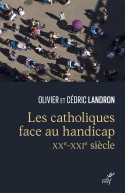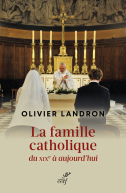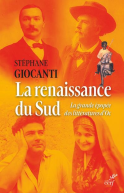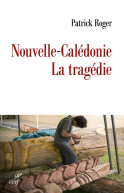
La vie chrétienne dans les prisons de France au XXe siècle
Collection L'Histoire à vif
688 pages - août 2011
38,50€
À quelques exceptions près, les relations entre l'Église catholique et le monde carcéral en France au XXe siècle ont été très peu analysées sur le plan historique. Le but de cette étude est de combler ce vide. Les catholiques français` se sont montrés très présents dans l'univers des prisons durant le siècle dernier. Cet engagement auprès des prisonniers â été globalement inspiré par les discours et par les réflexions des papes du XXe siècle sur la question carcérale, tout spécialement ceux et celles de Paul Vl et de Jean-Paul II. Les évêques français, quant à eux, ne se sont préoccupés collectivement de la réalité des prisons qu'à partir des années 1970. La présence de l'Église dans les prisons s'est aussi traduite par le ministère des aumôniers. Leur action s'est renforcée après la réforme pénitentiaire mise en place après 1945 par Paul Amor, à laquelle ont participé étroitement des magistrats catholiques. Des aumôniers ont eu un rayonnement certain sur les détenus qu'ils accompagnaient, à l'image de prêtres séculiers comme les pères Popot, Clavier et Darcy, ou religieux comme les pères Mouren et Brandicourt, jésuites, ou les pères Devoyod et Maillard, dominicains. C'est en 1945, sous l'impulsion de l'abbé Rodhain, que naît l'Aumônerie générale des prisons, qui a permis de centraliser l'action des aumôniers engagés auprès des détenus. Pour alimenter leurs réflexions sur le monde carcéral, il organise, avec Céline Lhotte et le Secours catholique, des congrès nationaux des prisons. En dehors des aumôniers, l'engagement des catholiques s'est concrétisé par la fondation de diverses associations en milieu carcéral comme l'OVDP (Œuvre de la visite aux détenus en prison), le Secours catholique, le Courrier de Bovet, AUXILIA ou le Bon Larron. Seulement tolérées par l'administration pénitentiaire, elles ont joué un rôle déterminant dans le fonctionnement des prisons françaises. Enfin, cette période a été marquée par les conversions exceptionnelles de certains détenus : Jacques Fesch, exécuté en 1957, Jacky van Thuyne, ancien ennemi public numéro un ou Danielle Huèges, entre autres. Durant tout le XXe siècle, le christianisme est resté une référence majeure dans l'univers carcéral en mettant l'accent sur le pardon : un acte personnel fort pour retrouver la paix en soi et avec la société.
--
With a few exceptions, relations between the Catholic Church and the prisons in France in the 20th century have rarely been analysed from a historical viewpoint. The aim of this investigation is to fill that gap. French Catholics were very much present in the prison world during the last century. Their engagement alongside prisoners was globally inspired by the speeches and ideas of the Popes of the 20th century, especially Paul Vl and John-Paul II. French bishops only took a collective interest in the reality of prison life from the 1970s. The presence of the Church in prisons was also manifest in the ministry of chaplains. Their action was strengthened after the penitentiary reform set up after 1945 by Paul Amor, in which Catholic magistrates played an active part. The chaplains had a positive influence on the prisoners they accompanied, as secular priests such as Fathers Popot, Clavier and Darcy, or clerics such as Fathers Mouren and Brandicourt, Jesuits, and Fathers Devoyod and Maillard, Dominicans, clearly demonstrated. It was in 1945, on the initiative of Abbé Rodhain, that the Aumônerie générale des prisons was born. It centralized the actions of chaplains in favour of prisoners. To nourish their reflection on the prison world, it organised, with Céline Lhotte and the Secours catholique, a national congress of prisons. But apart from the presence of chaplains, Catholic commitment was expressed by the foundation of diverse associations within penitentiary centres, such as the OVDP (organising visits to prisoners), the Secours catholique, the Courrier de Bovet, AUXILIA and the Bon Larron. Merely tolerated by the prison administration, they played a decisive role in how French prisons were run. Lastly, that period was marked by the exceptional conversions of certain prisoners: Jacques Fesch, executed in 1957, Jacky van Thuyne, former public enemy n° 1 and Danielle Huèges, among others. Throughout the 20th century, Christianity remained a major reference in prisons by insisting on forgiveness: a strong, personal act to procure inner peace and peace with society.
--
With a few exceptions, relations between the Catholic Church and the prisons in France in the 20th century have rarely been analysed from a historical viewpoint. The aim of this investigation is to fill that gap. French Catholics were very much present in the prison world during the last century. Their engagement alongside prisoners was globally inspired by the speeches and ideas of the Popes of the 20th century, especially Paul Vl and John-Paul II. French bishops only took a collective interest in the reality of prison life from the 1970s. The presence of the Church in prisons was also manifest in the ministry of chaplains. Their action was strengthened after the penitentiary reform set up after 1945 by Paul Amor, in which Catholic magistrates played an active part. The chaplains had a positive influence on the prisoners they accompanied, as secular priests such as Fathers Popot, Clavier and Darcy, or clerics such as Fathers Mouren and Brandicourt, Jesuits, and Fathers Devoyod and Maillard, Dominicans, clearly demonstrated. It was in 1945, on the initiative of Abbé Rodhain, that the Aumônerie générale des prisons was born. It centralized the actions of chaplains in favour of prisoners. To nourish their reflection on the prison world, it organised, with Céline Lhotte and the Secours catholique, a national congress of prisons. But apart from the presence of chaplains, Catholic commitment was expressed by the foundation of diverse associations within penitentiary centres, such as the OVDP (organising visits to prisoners), the Secours catholique, the Courrier de Bovet, AUXILIA and the Bon Larron. Merely tolerated by the prison administration, they played a decisive role in how French prisons were run. Lastly, that period was marked by the exceptional conversions of certain prisoners: Jacques Fesch, executed in 1957, Jacky van Thuyne, former public enemy n° 1 and Danielle Huèges, among others. Throughout the 20th century, Christianity remained a major reference in prisons by insisting on forgiveness: a strong, personal act to procure inner peace and peace with society.
- Dimensions : 135x215x30
- ISBN : 9782204094207
- Poids : 760 grammes
DU MÊME AUTEUR
Les catholiques face au handicap (XXe-XXIe siècle)
d' Olivier Landron ,Cédric Landron
336 pages - mai 2021
La famille catholique du XIXe à aujourd'hui
au prisme du politique
d' Olivier Landron
376 pages - janv. 2025
> VOIR TOUS LES LIVRES DE l'AUTEUR
DANS LA CATÉGORIE
La Renaissance du Sud
La grande épopée des littératures d'Oc
de Stéphane Giocanti
400 pages - sept. 2022










